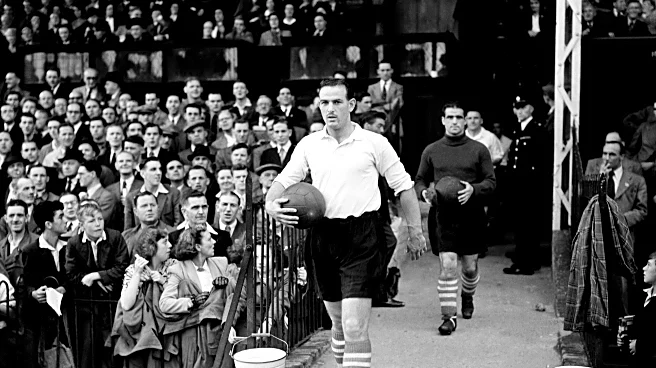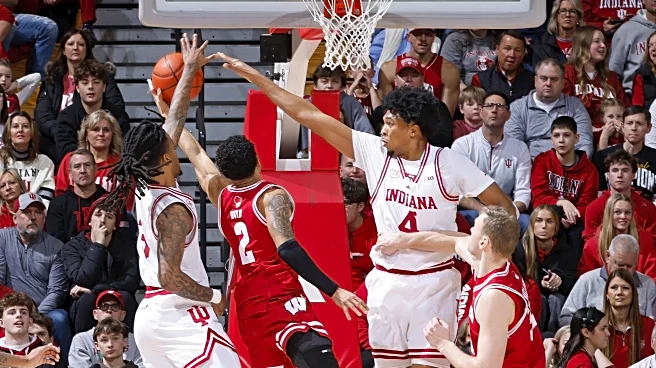After securing Sunderland’s return to the top flight at the sixth time of asking, Alan Brown promptly left the club in the summer of 1964 – apparently due to a dispute about his club house.
Whatever the circumstances that saw Brown depart to Sheffield Wednesday, the board took their time to appoint his replacement.
A ‘Selection Committee’ was put in temporary charge – an incredibly risky approach given all that had happened over the previous decade.
However, come November, Sunderland were sat in 20th
position – in a 22 team top flight – with only one win from the opening 15 league games.

Unsurprisingly, tensions were running high, with the board coming under intense criticism from all corners as a home game against Burnley approached on this day 51 years ago.
Writing in The Sunday Sun after Sunderland’s 3-0 hammering away at White Hart Lane the weekend before, local journo Alan Sleeman said:
All right, it’s time this Roker Board was called to account. No jokes, no wise cracks this time. Instead just an honest to goodness question – what in the blazes do Collings and Co think they are playing at?
They’ve taken more than three monts now trying to find a new manager, And all they’ve contrived to achieve is to besmirch the fair name of Roker in the soccer world. To make it an object of condescension, Of pity – and even, sometimes, of derision.
It just isn’t good enough. And it’s time someone said so.
Let them kick me out again – who cares? I won’t be the only absent friend soon if Roker’s wretchedly unhappy rulers continue in their own sweet way.
Sunderland are doomed even perhaps to the Third Division within three years if Sunderland’s board are not jerked quickly out of their stagnating confusion and bewilderment.
I’ve heard it said that unpleasant, angry words have been uttered at recent Roker boardroom meetings. As far as I’m concerned they haven’t been unpleasant or harsh enough.
Of this, I am convinced – Sunderland need a new, more competent manager NOW. But they will not get the best men for the job – and, most important, one who is publicly acknowledged as such – unless Sunderland present a new image to the football world.
It is futile if the board are hoping the players can salvage their pride and reputation.
To begin with the players have visibly lost heart, and, to some degree, interest — and this game spotlighted another home truth quite embarrassingly.
Sunderland are not good enough as a playing unit for the job.
It was a withering takedown of the Roker board, and Sleeman and the club’s hierarchy had butted heads before. A year earlier, an article by Sleeman had been interpreted by the club as undermining the players’ morale as they nervously approached promotion, and the journalist had been banned from the club – however, come April the ban had been lifted.

Sleeman wasn’t the only member of the press pack to criticise Sunderland’s board – and team. George Hardwick, the former Middlesbrough and England player, had been a manager for six years at Oldham before managing in the Netherlands, but had been out of the management game for six years after a year at PSV Eindhoven, and away from any involvement in football for 18 months. He does, incidentally, hold the record for being the only player to captain England on every appearance – skippering the team in all 13 games he played.
By day Hardwick been working as a rep for an oil company, by night he penned a weekly column in the Middlesbrough Evening Gazette, and a week earlier had written:
Unless the directors appoint a manager, and quickly, who has the know how to give back Charlie Hurley and his men the class, poise, self assurance and dignity, qualities with which they were so well imbibed only two seasons ago, then the mighty success of Sunderland FC 1964 will become the even mightier flop of Sunderland FC 1965.
Of Charlie Hurley he wrote:
Prior to last season I rated him as the best centre-half in the world, with his neat tackling and interception, his beautifully delicate ball play, and his immaculate constructive ideas with both head and feet.
Today, Charlie is just another ordinary stopper centre-half, and that is the sad story of Sunderland’s play in general.
For a few years now, the soccer entertainment at Roker Park has been pretty good but . . . it has suffered a deep decline.
At the start of last season ex-manager Alan Brown introduced his team to tactics that ensured promotion for them, but which I at the time, derided.
Alan was fully justified, but unfortunately and as I feared, those methods are now having repercussions. The long-ball power-type play which gained Sunderland promotion has become ingrained in the players, and it is not good enough for them to hold a Division I place.
I saw this again last week (October 31) when against an injury and illness-hit Stoke City, the Roker lads despite a 2-all draw, looked the inferior side.
Alan Sleeman’s words had fueled the ire of the board once more and he found himself banned from Roker as Burnley visited the north east – with future Sunderland manager Mick Buxton in the line up.
George Hardwick, who was 44 at the time, was in attendance however – and rather than earning a ban, it transpired he’d earned himself something else. The job.
He attended the match with his wife, watching Sunderland win just their second game of the season 3-2 with goals from George Herd, George Mulhall and a Dickie Rooks penalty.
The first Mrs Hardwick knew of her husband’s new engagement – which had been agreed the morning of the match – was when it was reported on a TV set in the Roker Park boardroom, after Syd Collings had announced the appointment to the press after the game.
We are very impressed with Mr Hardwick’s attitude to the game and are pleased he has accepted the position.
Short and sweet.
After his new role was made public, Hardwick – who it seemed hadn’t fully agreed terms – said:
It was not until last week that the situation was brought to a head. It was last Tuesday and Wednesday that it first became clear that I was likely to be Sunderland’s next manager.
We decided I should get on with the job first in an effort to get the team points — that is the vital thing at present, and from now on each point is worth its weight in gold.
Sunderland is a great club with a great tradition. Its fans are the most loyal in the world, and to the critics who ask the question: ‘Will we be relegated in our first season back in Division One?’ I give an emphatic ‘No.’
I know the players and I know the board well. I know the team’s faults, their strength and their ability, and I am sure we will all be really determined to solve the present problems.
A 3-0 defeat away at Sheffield United – to which Hardwick officially travelled as ‘an observer’ – signalled some deep-rooted issues to solve, however, the new manager’s confidence wasn’t misplaced. He won his first game, against Everton at Roker, 4-0, and steered Sunderland to comfortable safety, helping the team regain confidence and introduce some attacking swagger into their play.
Hardwick had been appointed until the end of the season, with the promise of a five year deal should he keep the club in the top flight. Despite keeping his part of the bargain, the club didn’t keep theirs, issuing a terse statement at the season’s end.
The temporary arrangement made by the board with Mr Hardwick ended on May 1 1965 and is not being renewed.
Short, and – on this occasion – not very sweet.















